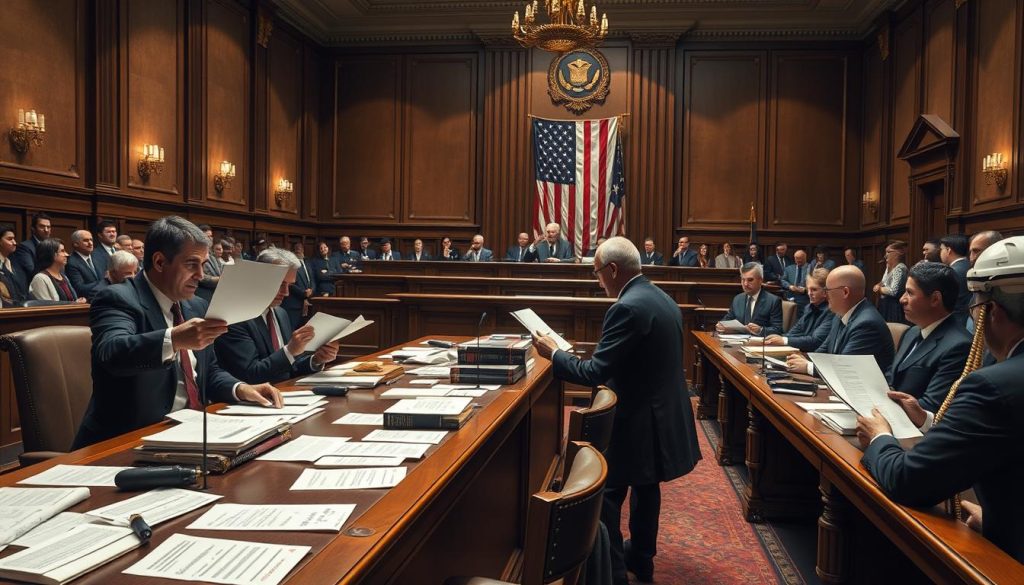Kennedy Funding Lawsuit is a well-known name in the commercial lending sector, specializing in bridge loans and private lending solutions. With a reputation for providing fast and flexible financing, the firm has played a significant role in supporting real estate ventures that might otherwise struggle to secure traditional funding. However, in recent years, the company has found itself embroiled in legal controversy, leading to a high-profile lawsuit.
The Kennedy Funding lawsuit has drawn attention due to its implications for the lending industry. Legal disputes involving financial institutions often have far-reaching consequences, shaping future regulations and influencing business practices. This article explores the background of Kennedy Funding, details of the lawsuit, key legal developments, and the potential ramifications for the financial and real estate sectors.
II. Background of Kennedy Funding
Founded to address the needs of borrowers who require quick access to capital, Kennedy Funding has positioned itself as a leader in the private lending market. The company specializes in high-risk loans, particularly for commercial real estate and land acquisitions. Unlike traditional banks, which have stringent lending criteria, Kennedy Funding offers more flexible loan structures, making it an attractive option for businesses and developers in need of urgent financing.
Over the years, the company has facilitated numerous high-value loans, helping businesses bridge financial gaps while waiting for long-term funding solutions. However, the aggressive lending strategies that have contributed to its success have also invited scrutiny. Questions surrounding the transparency of loan agreements, interest rates, and foreclosure practices have occasionally surfaced, leading to legal challenges and regulatory concerns.
III. The Lawsuit: Key Details and Allegations
The lawsuit against Kennedy Funding revolves around allegations of unethical lending practices and contractual breaches. Plaintiffs in the case argue that the company engaged in predatory lending tactics, misleading borrowers about terms, and enforcing unfair repayment structures. The primary issues raised in the lawsuit include excessive interest rates, undisclosed fees, and the alleged manipulation of loan terms to favor the lender rather than the borrower.
One of the key allegations is that Kennedy Funding imposed exorbitant penalties on borrowers who faced difficulties meeting their financial obligations. Some borrowers claim they were pressured into signing contracts without fully understanding the fine print, leading to severe financial repercussions. Additionally, the lawsuit suggests that the company’s foreclosure practices were overly aggressive, seizing properties from borrowers without allowing them reasonable opportunities to rectify their financial situations.
Kennedy Funding, on the other hand, has strongly refuted these allegations. The company maintains that it operates within the legal framework of private lending and that all borrowers enter agreements with full disclosure of the terms. According to Kennedy Funding’s defense, the legal action against them is a result of borrowers failing to uphold their contractual obligations rather than any wrongdoing on their part.
IV. Legal Proceedings and Developments
The lawsuit has undergone several critical phases, with court hearings and legal arguments shaping the direction of the case. Initially, the case gained traction when multiple borrowers came forward with similar grievances, prompting legal experts to examine Kennedy Funding’s lending practices more closely.
As the legal battle progressed, key rulings and judgments have provided insight into how courts perceive the claims against Kennedy Funding. Some courts have ruled in favor of borrowers, citing unfair lending terms and procedural inconsistencies in the company’s foreclosure practices. However, other judgments have sided with Kennedy Funding, emphasizing that borrowers were contractually obligated to adhere to agreed-upon loan conditions.
Public and industry reactions to the lawsuit have been mixed. While some financial analysts argue that Kennedy Funding’s practices reflect standard procedures in private lending, others believe the case highlights the need for greater transparency and regulation in the sector. Legal experts suggest that the outcome of this lawsuit could set a precedent for future disputes involving private lenders and borrowers.
V. Implications for the Lending and Real Estate Sectors
The Kennedy Funding lawsuit carries significant implications for both the lending and real estate industries. If courts rule against the company, it could prompt stricter regulations on private lending practices, forcing lenders to adopt more transparent and borrower-friendly policies. This would have a ripple effect on how bridge loans and commercial real estate financing operate, potentially increasing scrutiny on interest rates, contract terms, and foreclosure procedures.
For borrowers, the lawsuit serves as a cautionary tale about the importance of understanding loan agreements before signing. Many businesses and real estate developers rely on quick-access loans to stay afloat, but failing to fully comprehend the terms can lead to legal entanglements and financial distress. Future borrowers may become more vigilant in negotiating fairer terms and seeking legal advice before entering agreements with private lenders.
On a broader scale, the case could influence regulatory bodies to tighten their oversight of private lending institutions. Government agencies may introduce new policies to prevent predatory lending practices, ensuring that borrowers are protected from exploitative financial arrangements. The evolving legal landscape may lead to increased transparency requirements, ultimately reshaping the private lending market.
VI. Conclusion
The Kennedy Funding lawsuit is a pivotal legal battle that underscores the complexities of private lending. While the company has played a crucial role in providing financing solutions, the allegations against it raise questions about ethical lending practices and borrower protections. As the case unfolds, its outcome will likely shape industry standards and regulatory frameworks for years to come.
Regardless of the final judgment, this lawsuit serves as a reminder for both lenders and borrowers to engage in fair and transparent financial transactions. For businesses and individuals seeking funding, due diligence is essential in ensuring that loan agreements align with their financial capabilities and long-term goals.


